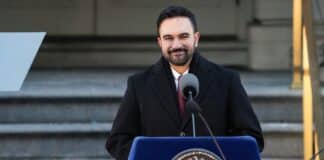Former Education Secretary Linda McMahon declared that the 43-day government shutdown exposed just how unnecessary the U.S. Department of Education has become. Writing after the shutdown ended, McMahon said families across the nation witnessed that schools, teachers, and students functioned without interruption despite the federal agency being closed.
The Trump administration has long called for eliminating the Department of Education, arguing that education should be controlled at the state and local level. President Donald Trump signed an executive order earlier this year initiating the process of dismantling the department. While that order marks a significant step, fully ending the department requires an act of Congress.
McMahon pointed to the recent shutdown as clear evidence supporting conservative efforts to reduce the size of the federal government. She emphasized that students remained in class, teachers continued to be paid, and daily school operations were unaffected. The lack of disruption, she said, revealed how little the federal bureaucracy actually contributes to classroom learning.
She clarified that ending the department would not eliminate federal support for critical programs. Funding for students with disabilities and those from low-income backgrounds would continue, along with legal protections for civil rights in education. These responsibilities, she explained, predate the department itself and would remain under other agencies or state control.
McMahon also detailed ongoing efforts to streamline federal education functions, expand school choice, and support career readiness programs. The administration’s plan aims to prove that educational quality and access can improve without federal micromanagement.
In April, Senate Republicans introduced legislation to eliminate the Department of Education, backing Trump’s executive order. The bill currently sits in committee.
McMahon’s statement echoes a long-standing conservative belief that education decisions belong in the hands of parents, teachers, and local leaders—not Washington bureaucrats.





